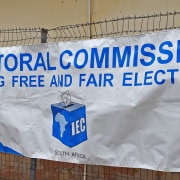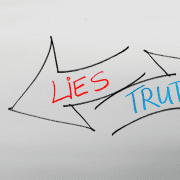|
Getting your Trinity Audio player ready...
|
South Africa goes to the polls again in 2026, this time to elect their local government representatives. Over the years voters have become well aware that, in the murky waters of the country’s political environment, there is a lot going on that the public knows nothing of – and not all those goings-on are above board.
Donor funding is one of those worrisome areas. To address the problems inherent in this secretive space, the Political Party Funding Act – now known as the Political Funding Act (PFA) – came into force on 1 April 2021, representing a commitment to enhancing the transparency, fairness, and accountability of electoral processes.
A recent symposium on political funding in South Africa, hosted in Durban by the Independent Electoral Commission (IEC), brought together key stakeholders to assess progress in the four years since the promulgation of the PFA. The event also aimed to explore how to strengthen the country’s democratic framework in this regard.
Taking place on 18 and 19 June 2025, this was the first such event. It was opened by IEC chairperson Mosotho Moepya, who was followed over the next two days by a plethora of speakers including finance minister Enoch Godongwana, IEC chief electoral officer Sy Mamabolo, former politician and current WWF SA chairperson Mohammed Valli Moosa, Prof Sarah Mosoetsa, the CEO of the HSRC, IEC commissioner Janet Love, Transparency International’s thematic lead on political integrity Jon Vrushi, and many more.
Attendees included legal and political experts, representatives from political parties, media, civil society, and academia, and policymakers from here and abroad. The assembly was also treated to presentations from Mexico, Uganda, Tanzania, and Senegal, who shared their experiences on political campaign financing, their respective regulatory approaches and challenges, and the impact on democratic integrity.
“The success of political funding legislation hinges on more than just the law itself,” said Moepya in his opening speech. “It demands robust enforcement, which in turn requires independent and well-resourced oversight bodies, free from political interference.”
Well-crafted legislation is critical for democratic health, he said. “At its core, political finance regulation is designed to safeguard the very essence of the democratic process. Its universally recognised objectives are to foster transparency, ensure accountability, promote fairness, and protect democratic integrity from undue influence and corruption.”
Ensuring a level playing field is vital for free and fair elections, said Moepya. “Regulatory tools such as limits on donations, restrictions on campaign spending, and public funding mechanisms are specifically designed to ensure that electoral contests are fair and competitive. These provisions aim to provide genuine equality of opportunity for all participants, preventing financial disparities from becoming insurmountable barriers to political participation.”
This fairness, accountability, and transparency is more than merely a bureaucratic requirement, he added, but rather a powerful, multi-faceted mechanism for deterrence and empowerment. “By requiring the disclosure of funding sources and detailing how funds are spent, the public is empowered to make informed decisions about candidates and parties.”
PFA challenged
Setting the scene in his speech, Mamabolo said: “I urge all participants – regardless of ideological persuasion – to see this moment not as a burden, but as an opportunity. A chance to improve a law that touches the very soul of our democratic practice. To recommit to the principle that no political ambition should rest on secret money, undue influence, or inequitable advantage.”
He asked delegates to reflect on four critical points:
- The effectiveness of disclosure mechanisms.
- The law’s impact on the promotion of multi-party democracy.
- The adequacy of public funding.
- The effectiveness of enforcement.
“These are challenges that demand data, dialogue, and above all, political will. Today, we are called upon to … objectively assess the law’s impact and ask: Has it delivered on its promise? Has it safeguarded our democracy? Has it enabled – not hindered – the healthy competition of ideas in the political marketplace?”
Laws are not ends in themselves, Mamabolo added, but are instruments to serve the common good. “When they fall short, we must have the courage to revise them. When they succeed, we must have the humility to strengthen them further.”
The PFA was challenged barely a year after its promulgation, with the ANC asking for the minimum threshold for declarations to be increased from R100 000 to R500 000, and the limit a single donor can donate annually to a party to be increased from R15-million to R100-million or to just be scrapped entirely. This move was widely criticised, and the proposed amendments have not been implemented – yet.
Under the Electoral Matters Amendment Act, the PFA was amended in 2024 to include the regulation of funding for independent candidates and representatives, to amend the title and preamble, and to provide for the right of political parties, independent candidates, and independent representatives to refuse donations, among several others.
Appetite for political support is waning
With local government elections coming up next year, it is important that voters know where their chosen candidates are getting their money from. When financial data is transparent and accessible, public trust in government institutions is enhanced and when political funding data is available for scrutiny, this strengthens the public’s confidence that every vote carries equal weight and the influence of wealthy interests in disproportionately shaping electoral outcomes is reduced.
At the event, the Human Sciences Research Council (HSRC) presented the findings of its latest research into the political party funding space in South Africa. The report is titled Regulating Political Finance in South Africa, and subtitled Perspectives on the Political Finance Act and Its Implementation.
“The Political Funding Act was enacted to promote transparency, accountability, and fair competition in the financing of political parties and independent candidates and representatives,” the report noted. “The legislation makes the disclosure of large donations mandatory, regulates both public and private funding, and established mechanisms such as the Multi-Party Democracy Fund.”
The study was overseen by the HSRC’s Political Funding Unit and Research and Knowledge Management Unit. It gathered the perspectives of stakeholders and members of the general public on the PFA and its implementation since promulgation and explored the effectiveness of the current regime. This data was used to identify areas for potential policy improvement and develop appropriate recommendations.
One of the key findings was visible concern that political parties and independent candidates are influenced by donations from wealthy elites. The HSRC found that 16% of the general public was extremely worried, 21% very worried, and 33% somewhat worried – while a minority (23%) of adults reported little to no concern and 6% were uncertain. “Higher levels of education and socio-economic status were associated with greater concern about elite influence. Being a regular voter was also correlated with being worried about this issue.”
Respondents’ perceptions of transparency in political donations were mixed, with roughly half of adults believing the public has too little or far too little information about who donates to political parties and independent candidates.
In addition – and in stark contrast to the ANC – nearly half (46%) of all adults considered the R15-million annual donation cap too high or far too high, while 29% viewed it as appropriate. Only 10% thought it was too low.
Another trend that emerged was an all-time low level of public trust in politicians and political parties, and a consequent widespread uninterest in politics in general. “Trust in political parties and politicians is low, with only 17% and 14% of the adult public, respectively, expressing confidence in them. Political disengagement is also prevalent, as most South Africans (including party members) show little interest in politics.”
Political donations
This deep uninterest in politics is carried through to the public’s scant appetite for supporting political parties in financial terms. “Less than a tenth of the mass public have ever donated to a political party or independent candidate. Among non-donors, 73% of them expressed no interest in donating in the future.”
In fact, just 6% of respondents said they donated recently (2%) or in the more distant past (4%).
“Contrary to expectations, wealth and education were not strong predictors of donation behaviour. Gender played a role; women were less likely than men to donate to a political party or an independent candidate. Electoral participation was weakly linked to donation behaviour, with party members and supporters more inclined to contribute.”
The HSRC stressed the importance of keeping in mind that response bias may be hindering full disclosure in this particular area – this refers to factors that may compel people to provide a false or inaccurate response to a question, such as privacy concerns or perceived social desirability considerations.
For those respondents who did express their feelings on donating or not donating, the reasons were somewhat predictable. “Many adults expressed reluctance to donate due to a lack of awareness, distrust in political processes, and concerns about the misuse of funds. Financial constraints also play a significant role; some of the mass public felt unable to contribute beyond their basic needs.”
Those who were favourable towards donating said they saw it as a civic duty to strengthen democracy, promote transparency, and empower marginalised groups – particularly women.
“These findings reaffirm the need for improved public education and outreach to address scepticism and foster broader support for the Multi-Party Democracy Fund as a tool for political accountability and social change.”
Another important revelation was the widespread lack of awareness regarding the PFA. “Public awareness of the PFA in South Africa is generally low, with 61% of the adult public having never heard of it … These findings highlight a significant gap in public knowledge on this important issue, indicating the need for greater civic education and outreach to improve transparency and accountability on this issue for certain key groups.”
The HSRC added that public awareness is generally low in many areas of political life. For instance, the Zondo commission sat for four years, was widely reported on, and all hearing were televised, yet awareness of its work is worryingly low.
Overall, the findings suggest a “deep alienation from the political class,” said the South African National Editors’ Forum. “The reasons for public reluctance are varied: a lack of trust in politicians, ignorance of the regulatory frameworks, scepticism and fears of misuse of funds, and sheer economic hardship.”






